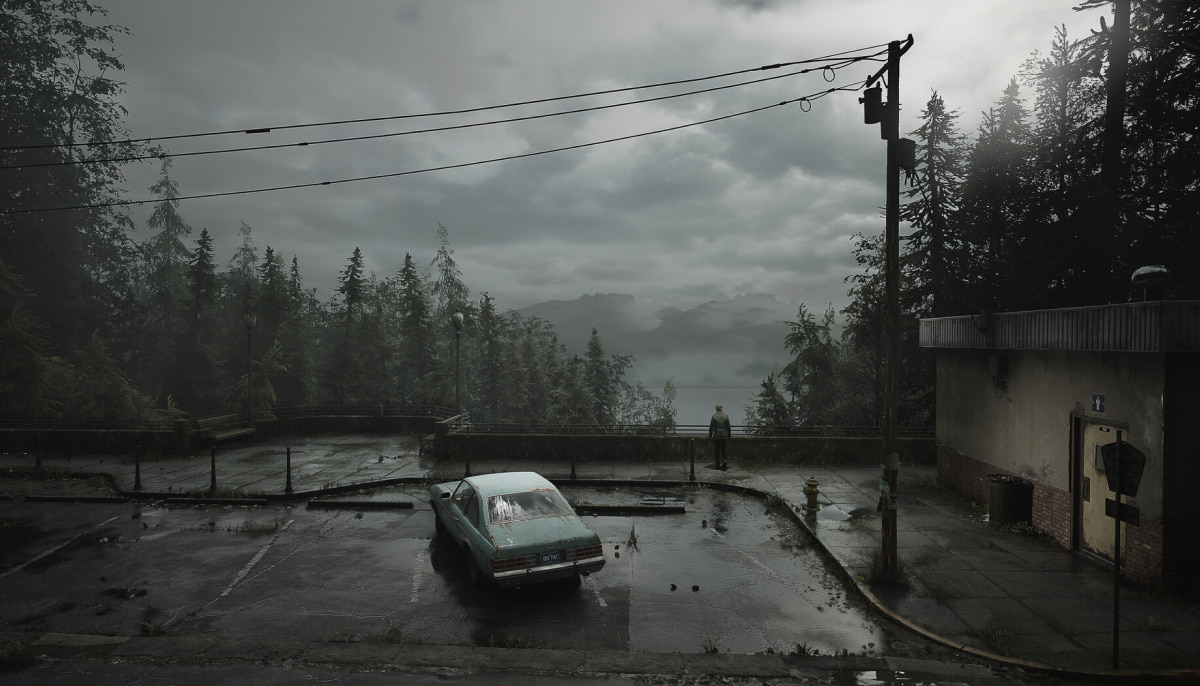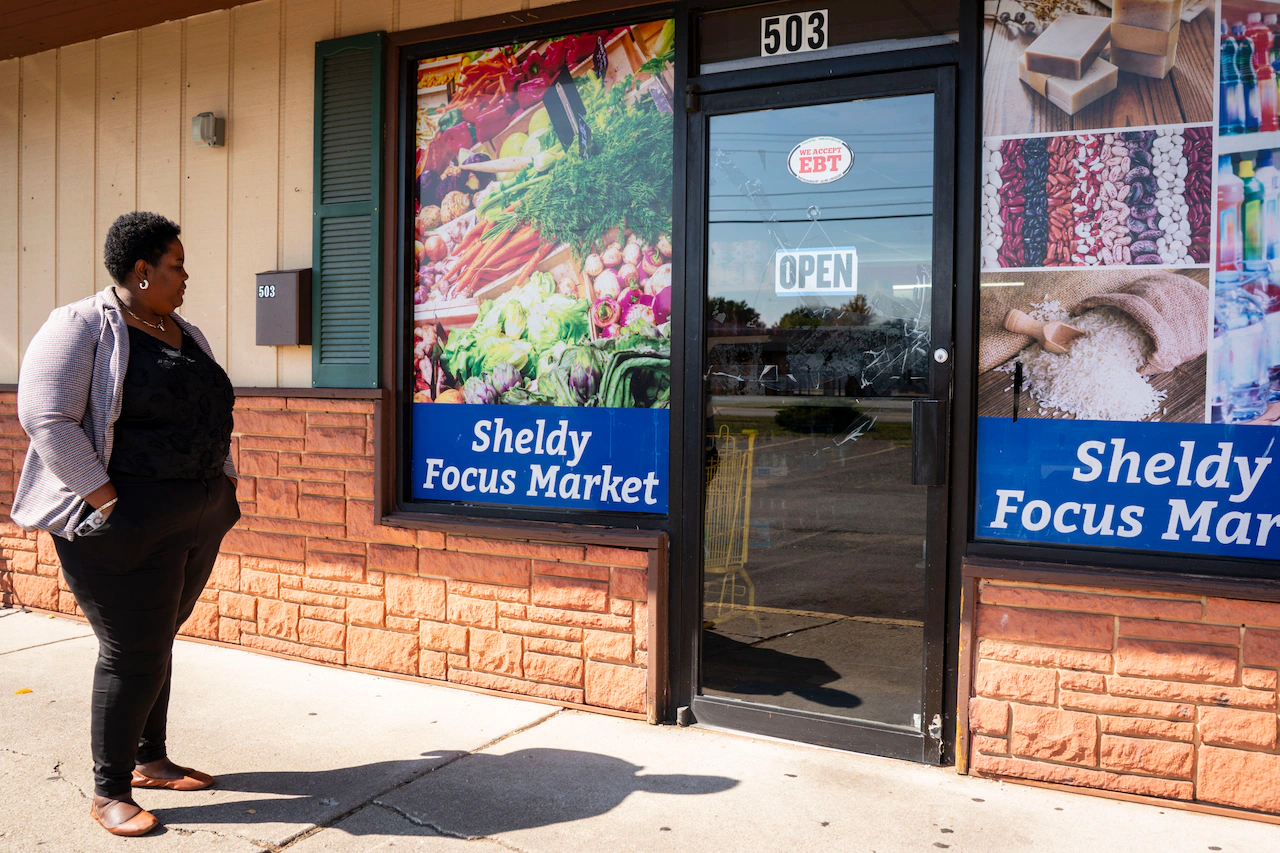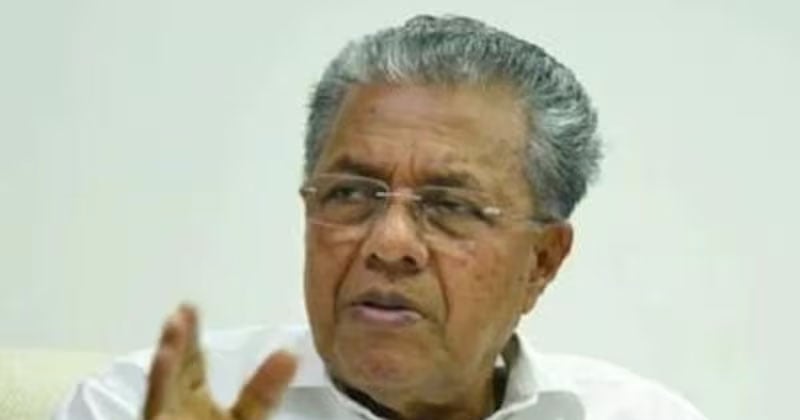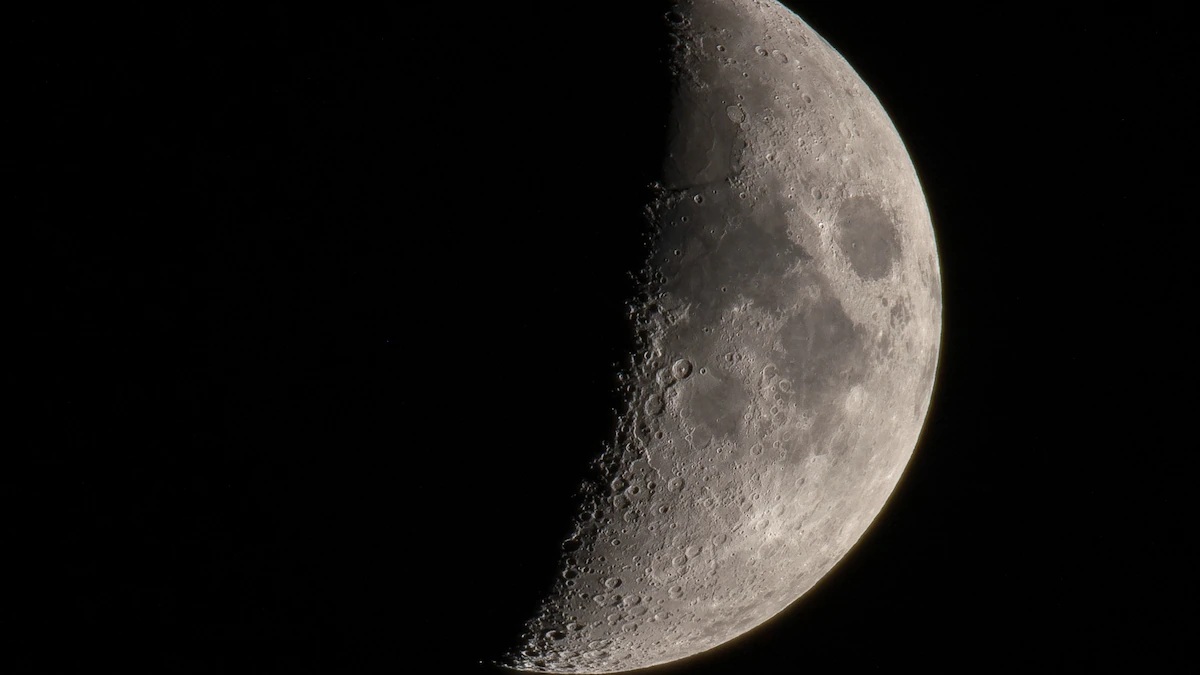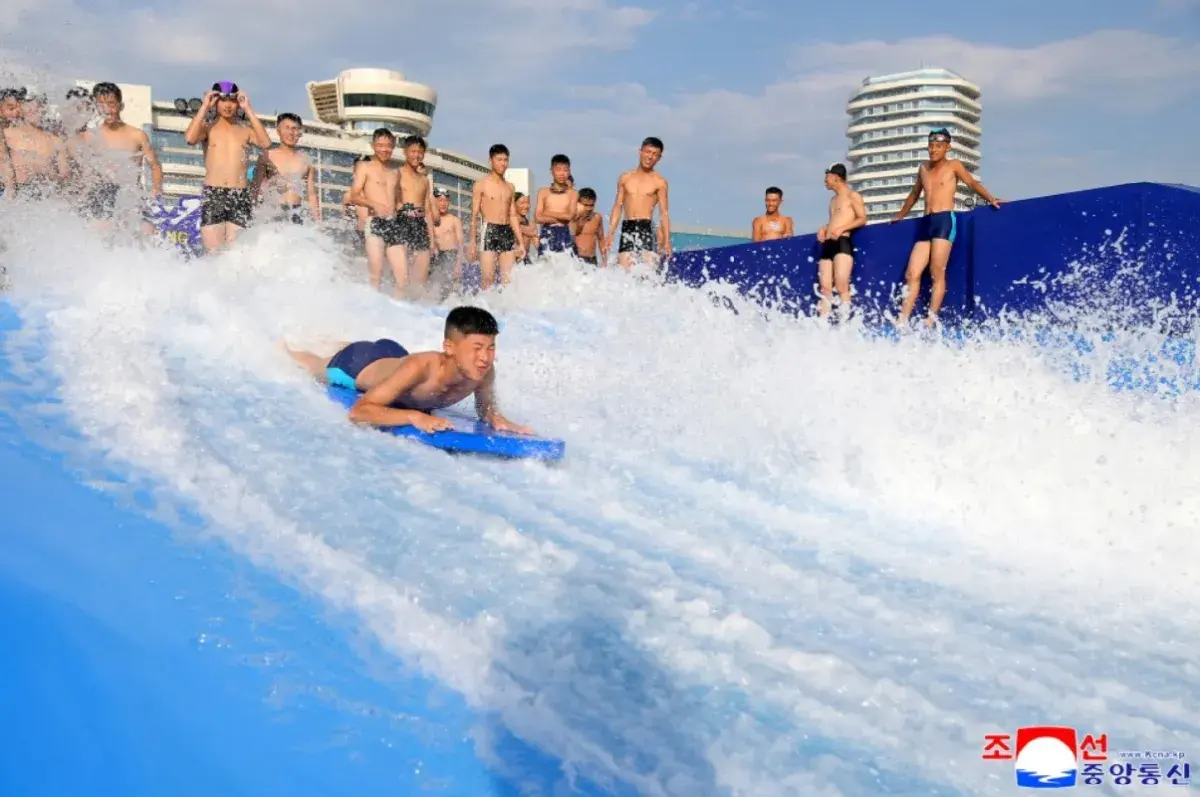
North Korea has been on a promotion offensive at the newly opened Wonsan-Kalma beach resort in an apparent bid to draw more tourists to what Supreme Leader Kim Jong Un has touted as an up-and-coming “world-level tourist resort.”
This week, a cooking festival was organized at Wonsan-Kalma, with activities including a “local specialty dish exhibition,” an instant food service contest and demonstrations by top chefs and waiters, the state-run Korean Central News Agency reported. Last week, the site reportedly hosted an art exhibition with around 2,500 works on display.
Why It Matters
Tourism accounted for a tiny fraction of North Korea’s economy even before it shut its doors in 2020 amid the spread of COVID-19, not reopening again until last year. The pandemic, along with international sanctions over the Kim regime’s ballistic missile and nuclear weapons programs, pushed back development.
Kim finally inaugurated Wonsan-Kalma in an event publicized by state media in late June, and it opened along the 2.5-mile-long Kalma peninsula on July 1, though observers noted most of the hotels appeared to be unfinished. The zone is the centerpiece of the 41-year-old leader’s ambition to breathe life into the North Korean tourism sector.
Newsweek reached out to the North Korean embassy in Beijing, China, with an emailed request for comment.
“The Wonsan-Kalma Coastal Tourist Area was built in a perfect way and people from different parts of the country started enjoying themselves there,” North Korea’s leader Kim said during a wide-ranging policy speech before the country’s rubber stamp parliament Sunday.
What To Know
Tourism was on the uptick in North Korea before COVID-19. The country reported a record 200,000 foreign visitors in 2018, the vast majority believed to be Chinese. The following year drew roughly 350,000 Chinese visitors alone, according to estimates by NK News.
With the opening of Wonsan-Kalma, Russians seem to be a particular target. Pyongyang and Moscow have accelerated efforts to step up ties since Kim and Russian counterpart Vladimir Putin inked a landmark agreement last year, which included a defense treaty.
Russia’s top diplomat Sergei Lavrov visited Wonsan-Kalma during his July trip to North Korea. Russians, who have entered in travel groups organized by authorized agencies, are the only international tourists currently allowed to visit Wonsan-Kalma, according to North Korean authorities.
Meanwhile, domestic tourism in the area, which state media previously claimed could host 20,000 people per day—before later doubling that number—appears to have slowed to a trickle. NK News analysis of satellite imagery shows the two main bus parking lots in Wonsan-Kalma have appeared empty since the end of August, after previously filling up in July.
Most countries do not maintain a diplomatic presence in North Korea, with many governments urging citizens to steer clear of the country, citing past arrests and a harsh penal code.
“Do not travel to North Korea for any reason. U.S. citizens are at risk due to arrest, long-term detention, and wrongful detention targeting U.S. citizens,” the U.S. State Department’s advisory reads.
What People Are Saying
North Korea-focused analysis group 38 North wrote in an August 1 report: “In short, the North Korean state seems to be confident to be able to afford even stronger self-isolation from the West in general, and from South Korea in particular.
“The renewed intensity of external relations with China and Russia, and now the emergence of the domestic consumer as an economic factor all contribute to this calculation. This means North Korea is in lesser need of Western economic cooperation and its leadership seems more than ever focused on economic development.”
What’s Next
It remains to be seen whether Pyongyang will move to open Wonsan-Kalma up to visitors from more countries in the near future, or how successful it will prove among Russians.
South Korea’s unification minister, Chung Dong-young, said this week he hoped an inter-Korean tourism program would resume that could see South Korean nationals visit sites such as the Wonsan-Kalma resort and North Korea’s Mount Kumgang, Yonhap reported. Seoul, under President Lee Jae Myung, has sought to walk back tensions with its northern foe.
–
